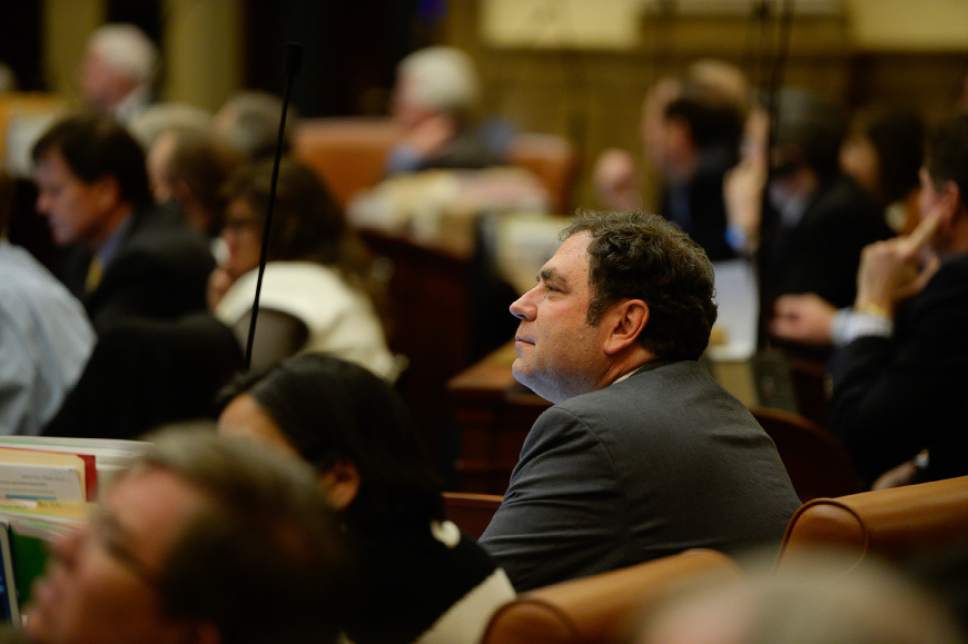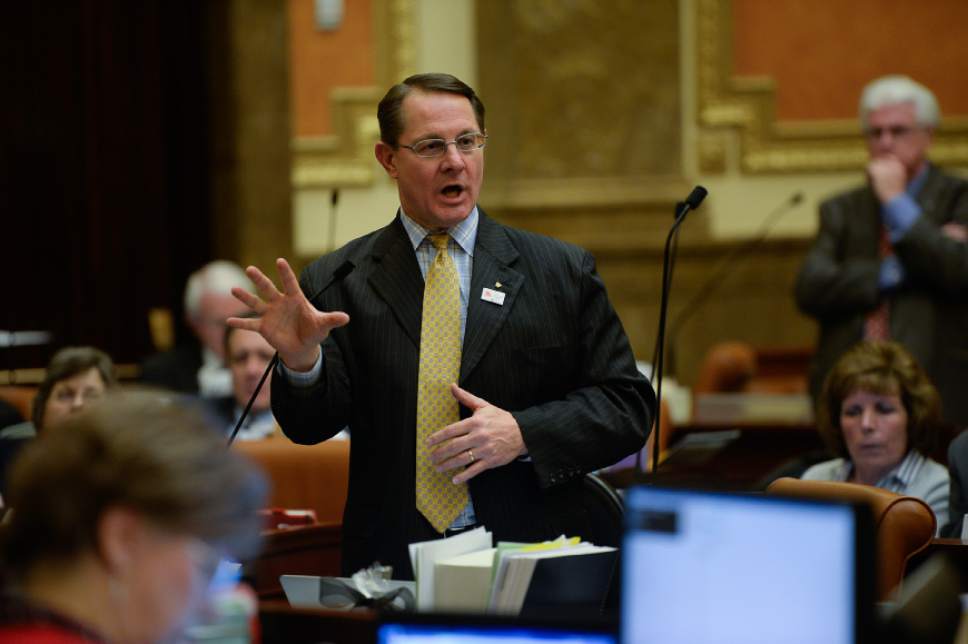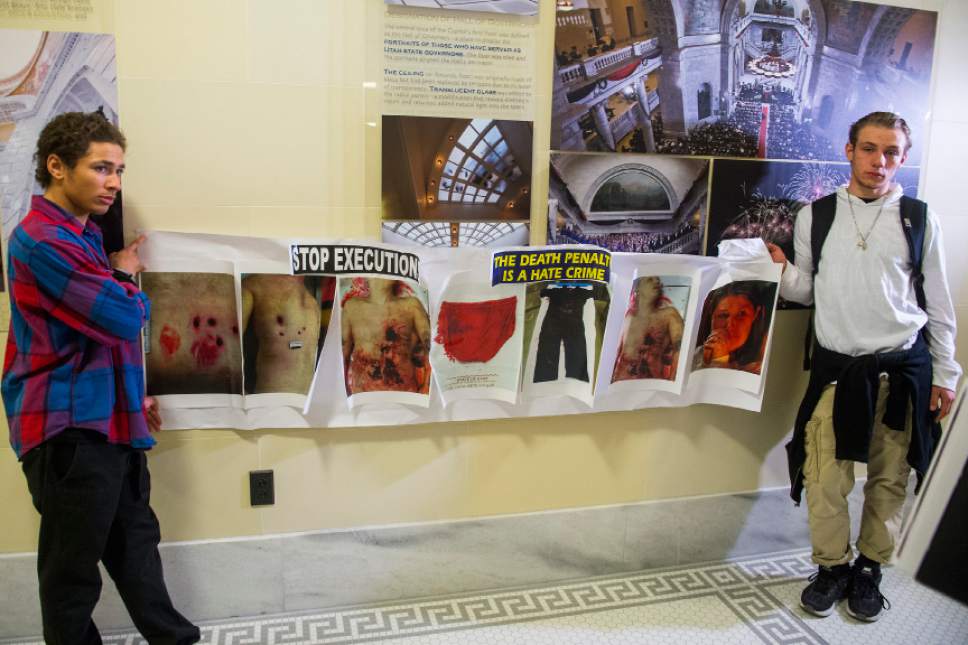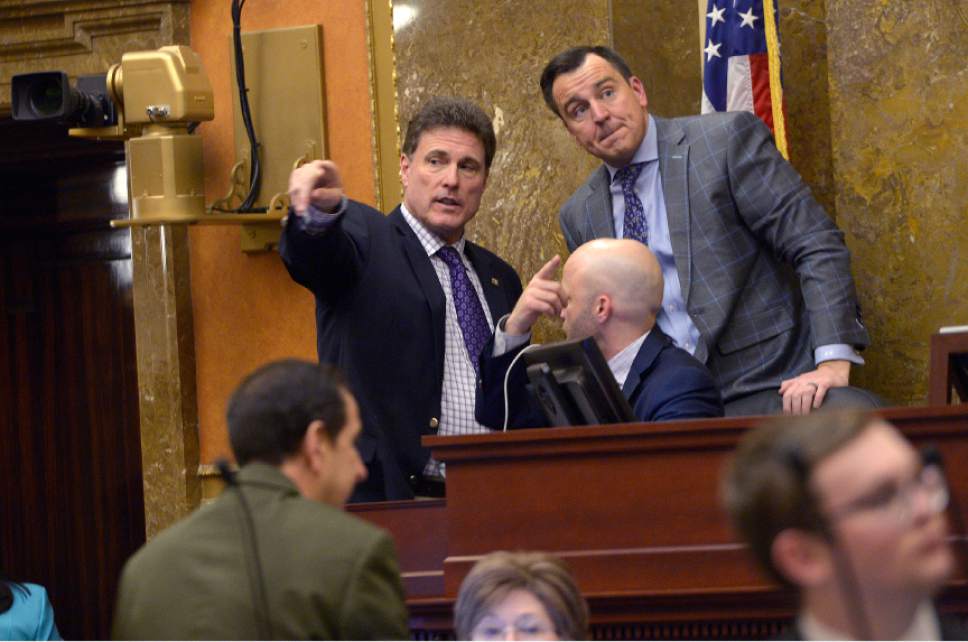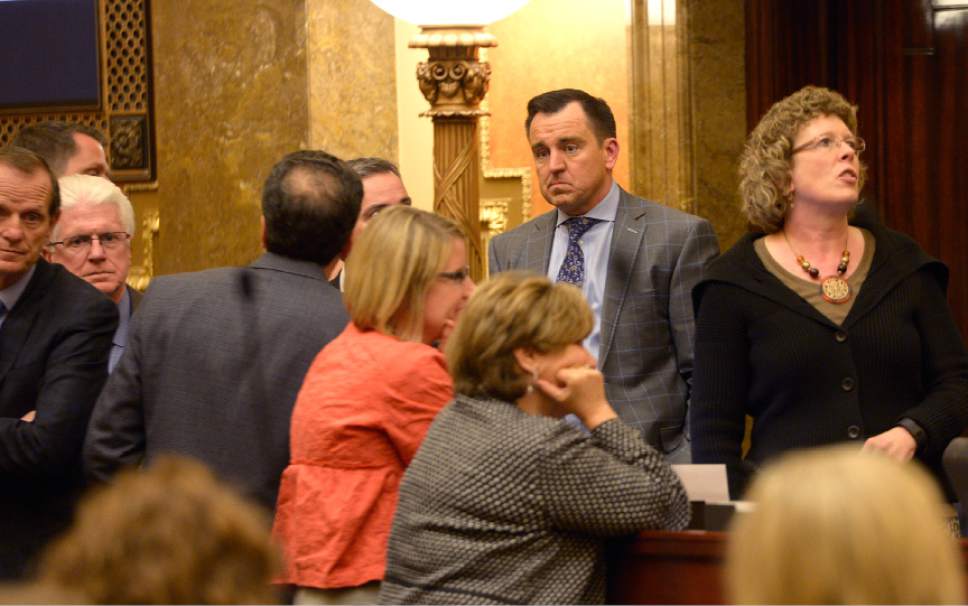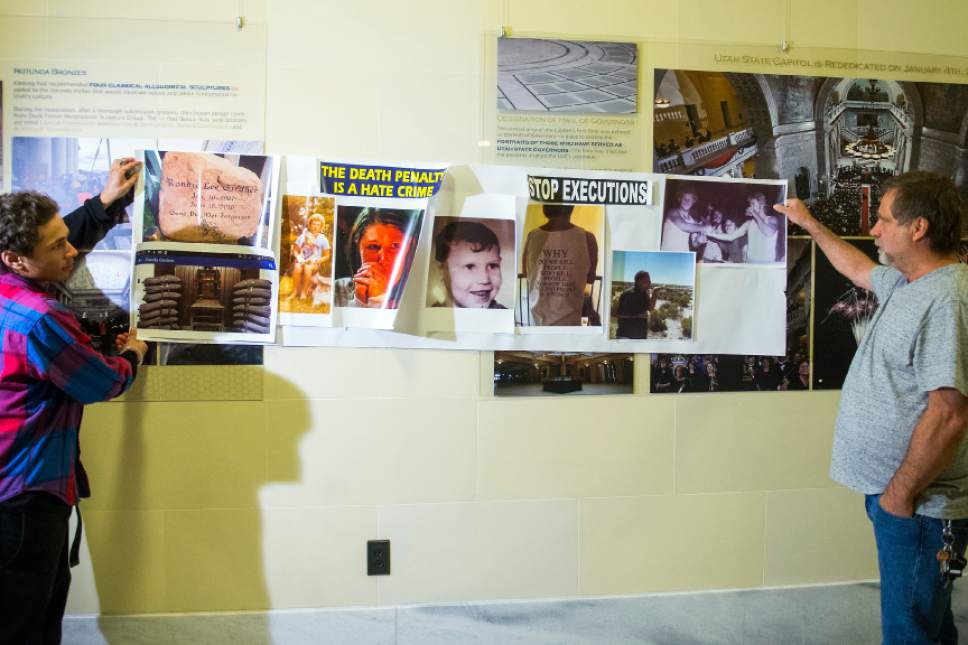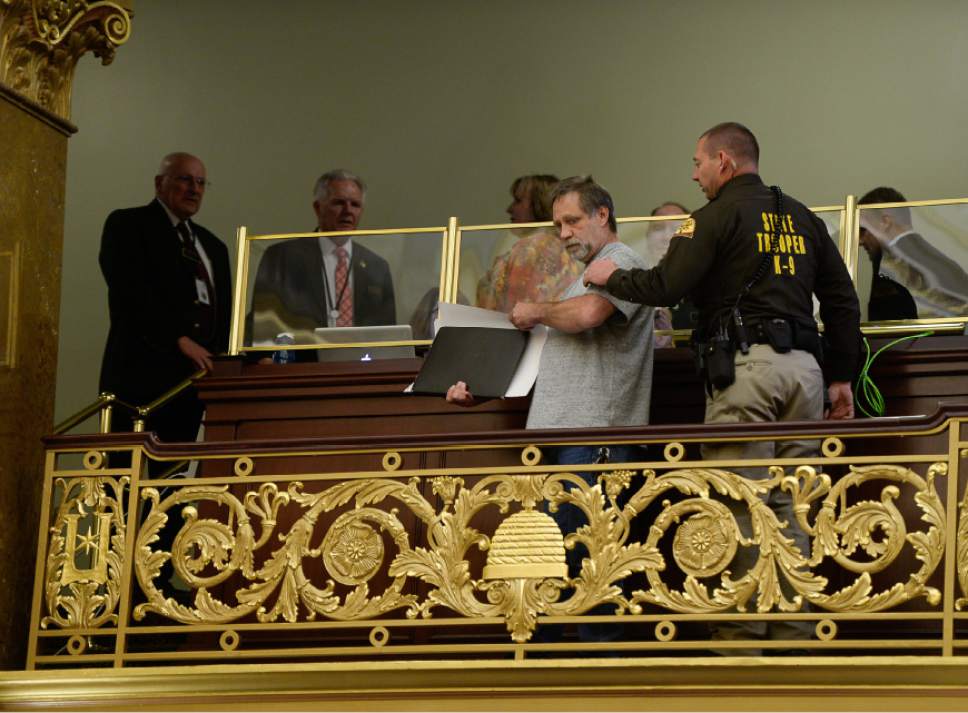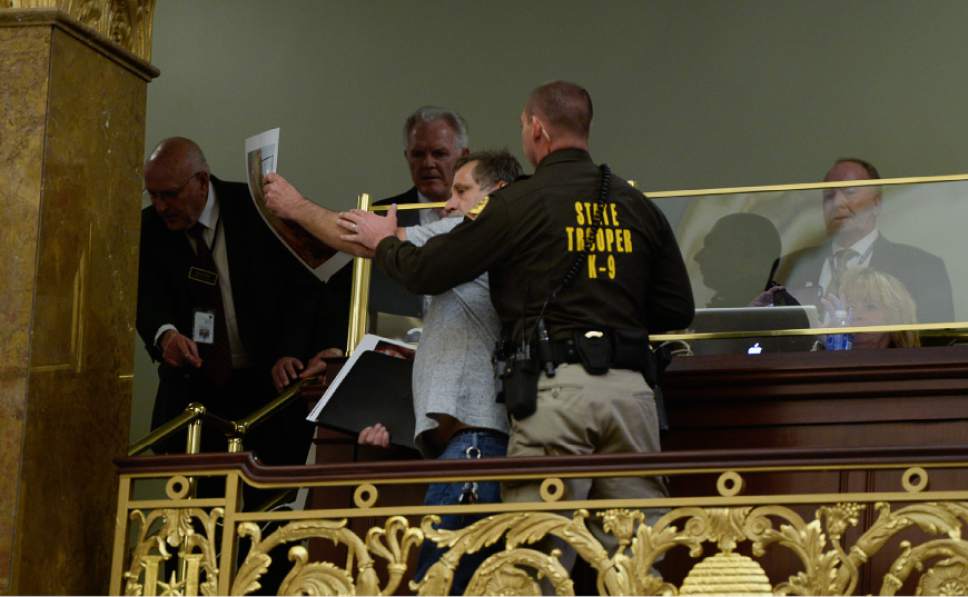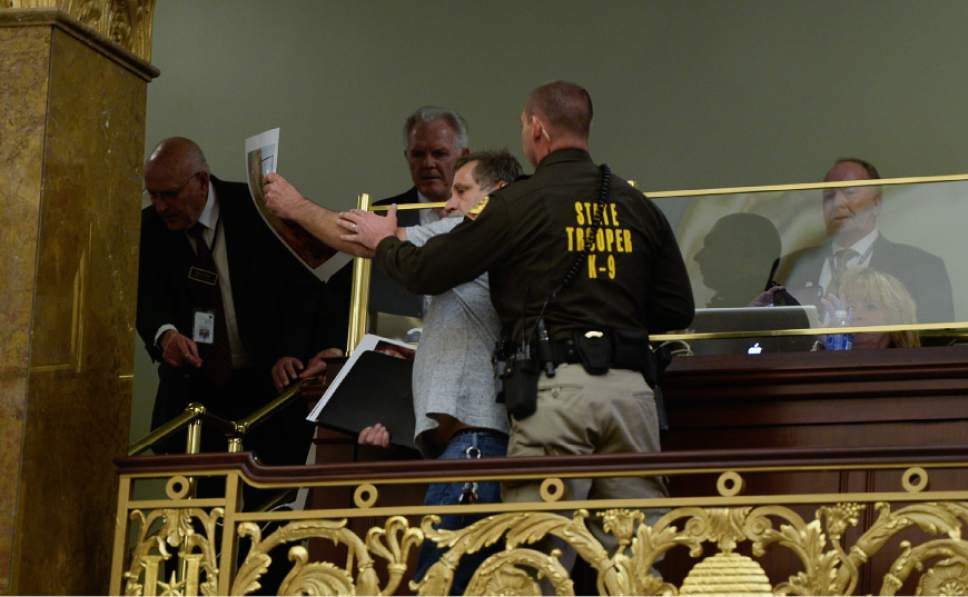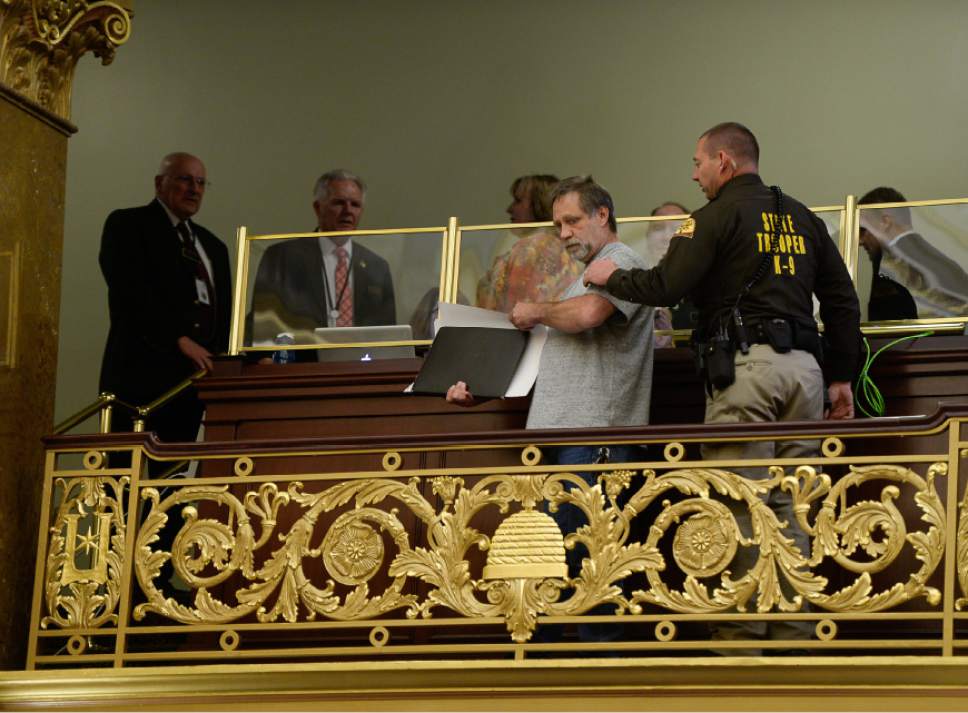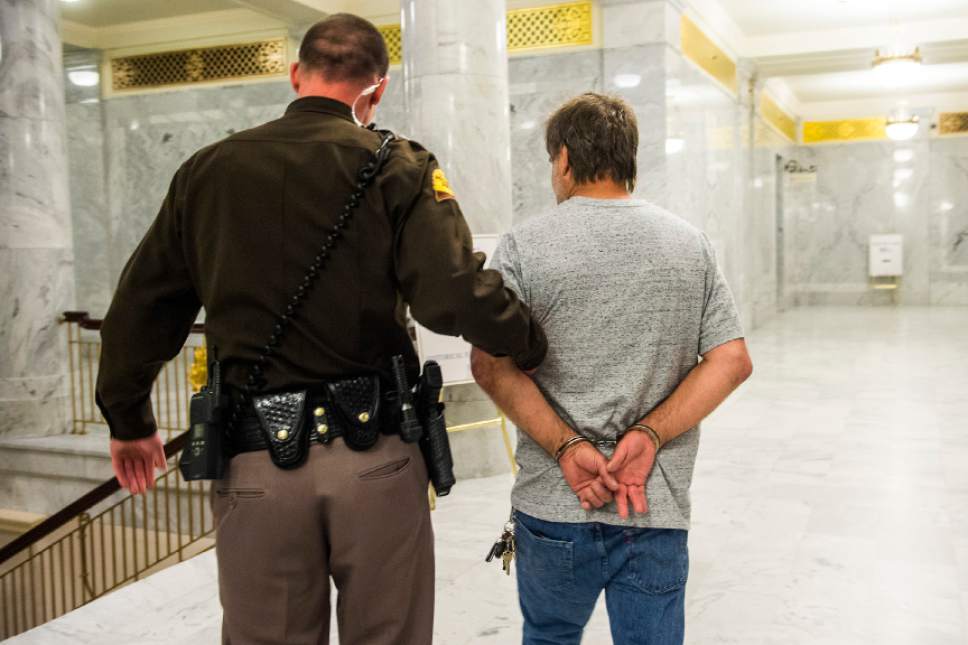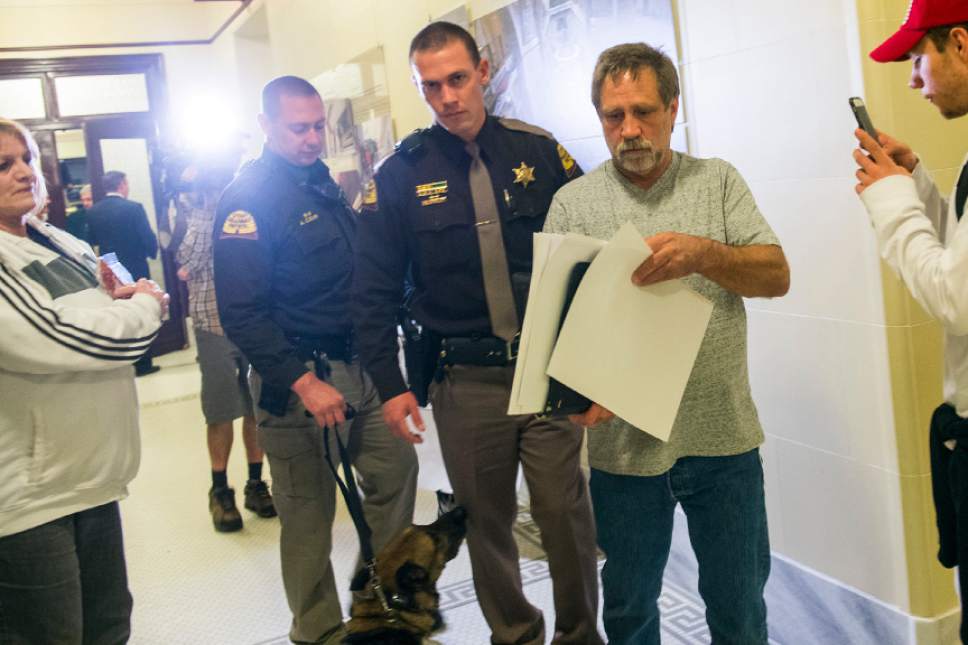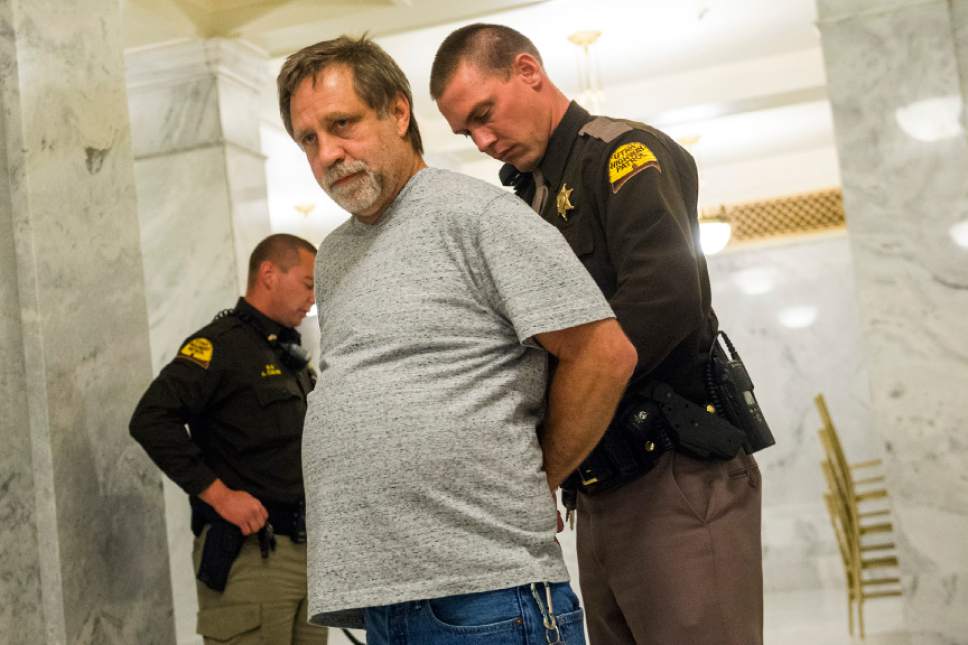This is an archived article that was published on sltrib.com in 2016, and information in the article may be outdated. It is provided only for personal research purposes and may not be reprinted.
A bid to abolish capital punishment in Utah stalled out late Thursday after its sponsor fell a few votes shy of securing a victory and decided to pull the bill in the final hours of the 2016 legislative session.
"Given the pressure of the last night, the votes I needed to swing, I didn't see them swinging," said Sen. Steve Urquhart, R-St. George.
SB189 was to have eliminated the death penalty as a punishment for first-degree felony aggravated murder convictions after May 10. That would have left life without the possibility of parole and 25 years to life as the punishments for the crime.
The bill would not have affected any capital case already being prosecuted, nor prevented Utah from carrying out the executions of the nine men currently on the state's death row.
Urquhart and a small army of volunteer lobbyists had secured support from more than 30 House members by Thursday, evening, but were fighting the clock, he said. Thirty-eight votes were needed.
The legislation already had passed the Senate.
Included in Urquhart's effort to get the bill through the House was a proposed amendment that would have imposed a five-year moratorium on the death penalty to give the public and state lawmakers more time to consider the reasons for a future repeal, he said.
"I'm a big believer in process, so I think, let's maybe slow this thing down a bit," he said. "I'm very surprised that it got as far as it did and I have little doubt that Utah will repeal the death penalty in a year or two."
A longtime supporter of the death penalty, Urquhart has said he changed course on the issue after learning more about how the practice actually works in the Beehive State.
On average, Utah spends an extra $1.6 million per death row inmate over its costs for those spending life in prison without parole, and typically it takes 25 years for a convicted killer to be executed, which delays justice for the families of victims.
Urquhart said many of his fellow lawmakers switched their own positions on capital punishment after hearing those facts.
"They realized we should be asking more questions. Every time we had a vote, we got the majority," he said. "It's one of the most amazing experiences I have had up here."
Three of Utah's nine death-row inmates have been waiting nearly 30 years for execution. The last time the state carried out the death penalty was in 2010, when Ronnie Lee Gardner was executed by firing squad for the 1985 murder of Michael Burdell. An attorney, Burdell was simply at the wrong place at the wrong time during Gardner's bloody, but failed, escape attempt in the 3rd District Courthouse in Salt Lake City.
Gardner's brother, Randy Gardner, was in the House gallery Thursday night waiting to see if SB189, which he supported, would move forward. His frustration grew into an outburst and a display of large pictures of his brother's bloodied dead body, which he and his son held up for lawmakers to see.
Gardner was asked to leave the gallery by the Utah Highway Patrol and detained, but not cited, UHP Lt. Jess Anderson said.
"I'm just disgusted, I had to get my point out, I can't take it no more," Randy Gardner told The Salt Lake Tribune in the hall outside the gallery. "It probably ain't going to change anything, but I feel better."
Gardner, who does not condone his brother's crimes, said the public and lawmakers need to understand the way the death penalty impacts not just the victims of killers, but the families of those executed as well.
"They need to see me," he said. "They need to hear me."


